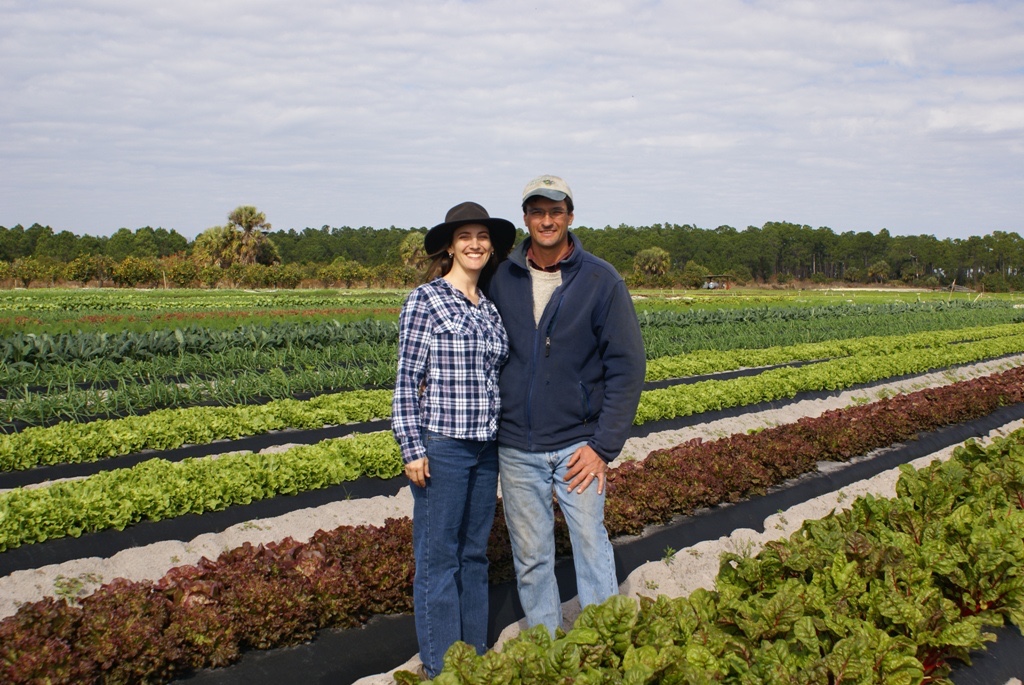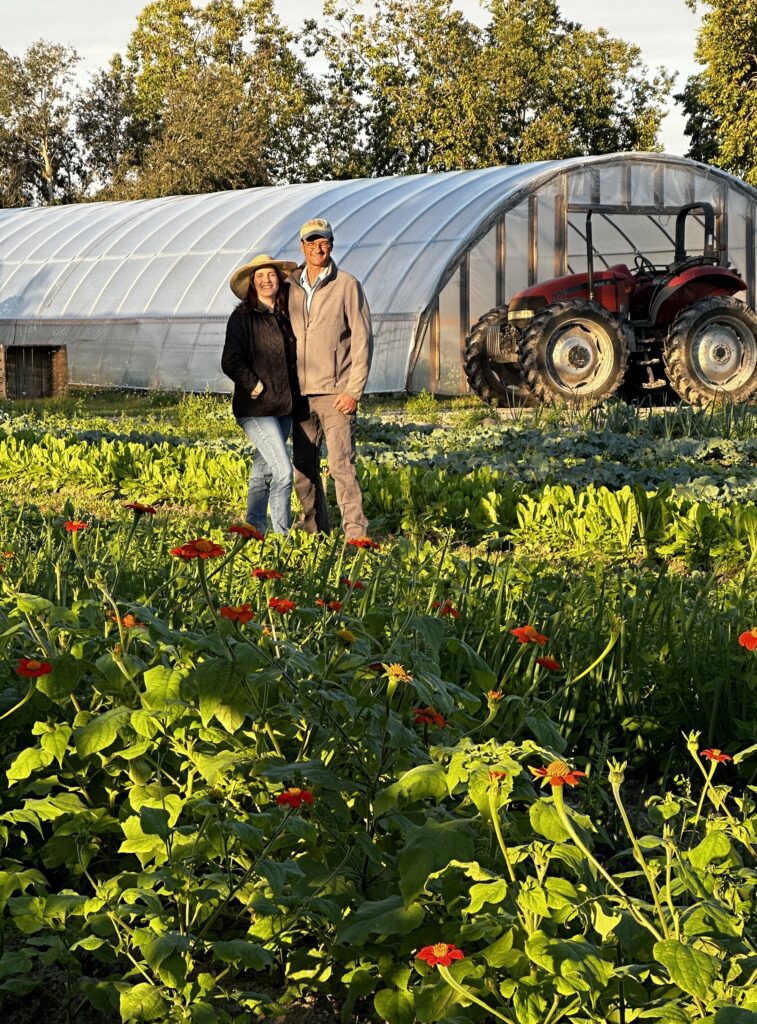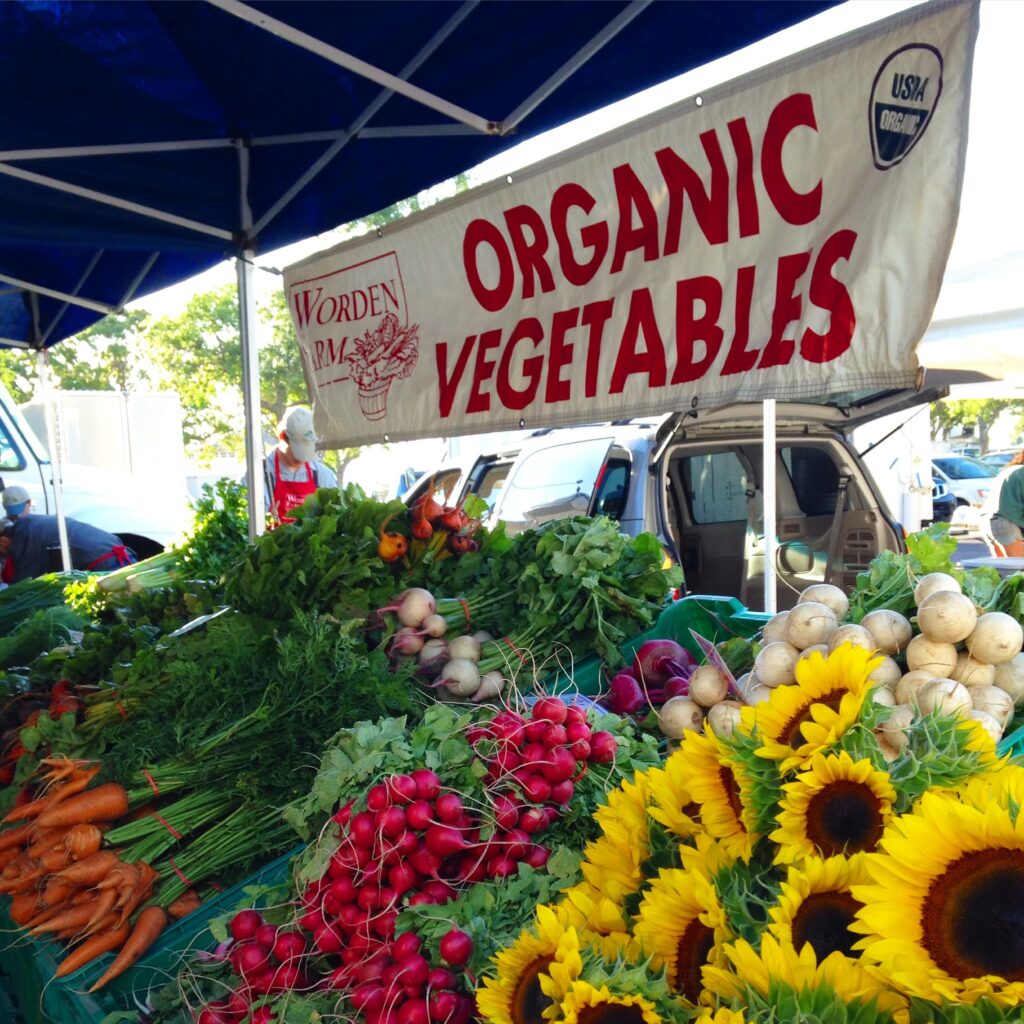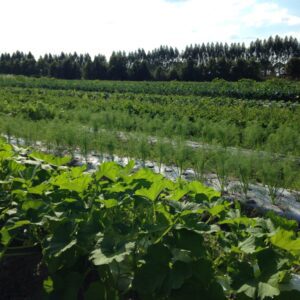
Apr 21, 2024Southwest Florida’s Worden Farm manages challenges
Land stewardship and mentoring other growers is an important part of operations at Worden Farm. Owners Chris and Eva Worden, who started the business in 2003, grow more than 50 vegetables, herbs and flowers organically.
Crops include sweet corn, cucumbers, eggplant, green beans, peppers, squash, tomatoes, beets and carrots in Punta Gorda, Florida. Leafy greens include arugula, broccoli rabe, chard, dandelion greens, escarole and spinach.

The Wordens market their organic crops through farmers markets, a farm box program and a members-only farm stand. The membership program provides seasonal start-up funds or “seed money” to support operations.
The Wordens’ consulting services help new farmers raise and market organic vegetable crops through information and guidance.
Weed challenge
Many growers are hesitant to farm organically because of concerns about weed management, Eva Worden said.
In Florida’s warm climate, where hard freezes are rare, controlling weeds can be challenging. The Wordens share their agronomic knowledge and practices, developed through trial and error, while continuing to experiment and improve.
The Wordens developed a weed management system that uses a combination of mechanical cultivation, mulch, crop rotation and cover crops. “The goal is to establish a good crop stand in each bed, with a high plant population, fully utilizing the available crop area,” Eva Worden said. “We aim for top-quality crops with no or few weeds.”
“In a successful crop run, as the crop nears maturity, it has an established plant canopy, and has outcompeted the weeds,” she said. ”The crop will be easy to harvest, and easy to turn over for the subsequent crop cycle.”

To minimize the weed seed bank in the soil, the Wordens focus on preventing weeds from going to seed. When possible, they transplant crops to give them a competitive advantage against weeds, and select vigorous crops and time the plantings to outpace weeds.
To reduce weed pressure priorto planting, the farm uses a stale seedbed technique, which allows weed seeds just below the surface to germinate and are killed before a crop is planted. Cultivation is most effective for young weeds in the “thread” stage of growth, Chris Worden said.
The operation uses many cultivation tools and techniques to address weeds within and between rows and in the wheel tracks. Older and newer high ground clearance cultivating tractors are set up for row and bed configurations, with belly or rear-mounted implements deployed for mechanical weed removal. For weeding within rows, disc hiller cultivators, steerable finger weeders and flex tine cultivators are used. Between rows, these implements as well as cultivating shanks and basket weeders are used. For wheel tracks, discs or S-tine cultivators are used. “We get good results by using the best equipment for the job, at the right time in the crop cycle,” Chris Worden said.
Growers must know their weed species and their growth habits and observe how environmental factors, such as soil moisture and temperature, affect weed germination and growth for different species, Eva Worden said.
Cover crop aid
The Wordens rotate crops, and in the summer, plant cover crops, including sunn hemp and sudex, for organic weed control. Cover crops contribute many benefits, including weed control, insect and disease population control and soil improvement. To prepare fields for seeding cover crops, the Wordens disc, field cultivate and till. Growing in June and July, the cover crop biomass is mowed and disced before the fields are cycled back into fall vegetable crops.

Some of the less common cropsWorden Farm customers like are daikon, jicama, roselle and calabaza.
“Our customers and farm members are enthusiastic about trying different crops and often will ask about what’s new this season,” Chris Worden said. The Wordens collaborate with the University of Florida (UF) Institute of Food and Agricultural Sciences Tropical Research and Education Center researchers on calabaza and cucurbita moschata, a tropical pumpkin well-adapted to southwest Florida’s climate, making it a good fit for organic production, Chris Worden said.
The Wordens met while earning masters of science degrees in horticulture at the University of Maryland. Eva, who grew up in the Miami area, earned her bachelor degree at UF. Chris grew up on Maryland’s Eastern Shore, spending summers on his family’s multi-generational dairy farm in Pennsylvania. Eva’s family planted a tropical fruit grove in Homestead, Florida, in 1980.
They both earned doctoral degrees in the early 2000s while farming part-time on land trust property in Connecticut and were involved in the Northeast Organic Farming Association. Chris earned a doctorate in crop science from the University of Connecticut and Eva’s is in ecosystem management from Yale. Founding Worden Farm in 2003, the couple built their business, reinvesting yearly to improve efficiencies and productivity.
“We love growing for our local community and creating meaningful and enduring connections with them, giving them access to healthy food and an opportunity to play a part in the stewardship of our farmland,” Eva Worden said. “When we can help our neighbors to be healthier, that enlarges their capacity and improves their lives, which beneficially ripples outward into the larger world.”
Sustainability is a key goal.
“To be sustainable long-term,we ultimately want to create an agricultural system that can thrive without us,” she said. “We are the founders of this farm, and we recognize that in order for it to continue beyond us, we must make it viable for our successors. Our goal in the last 20 years was to start up the farm, and our goal in the next 20 years will be to grow towards the future, with our two sons, for the next generation.”
— Doug Ohlemeier, assistant editor
Top photo: With doctorate degrees in crop science and ecosystem management, Chris and Eva Worden grow a variety of vegetables, herbs and flowers in southwest Florida. Photo by Lynn Morris.
















